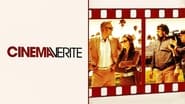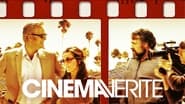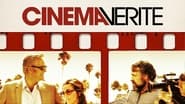Matrixiole
Simple and well acted, it has tension enough to knot the stomach.
Merolliv
I really wanted to like this movie. I feel terribly cynical trashing it, and that's why I'm giving it a middling 5. Actually, I'm giving it a 5 because there were some superb performances.
PiraBit
if their story seems completely bonkers, almost like a feverish work of fiction, you ain't heard nothing yet.
Kayden
This is a dark and sometimes deeply uncomfortable drama
markgorman
In 1971 an all American family from Santa Barbara in California were chosen, seemingly at random, to take part in a TV experiment. It was to become the world's first reality TV show called "An American Family" and its stars, the Loud family – both by name and at times by nature, were to become national phenomena.But to get to legendary status the show's producer, Craig Gilbert, had a pretty hard sell to the board of TV company PBS who were reluctant, to say the least, to commit to the show and began to baulk at the cost of production as the film stock costs (in particular) began to mount.Their concern was about the "view-ability" of the show and whether it would find an audience. They needn't have worried because what gradually emerged was a tale of a swinging misogynist father (Tim Robbins), a hopeless and helpless (but sultry in Gilbert's opinion) Mom played brilliantly by Diane Lane and a screamingly gay son, Lance, played gleefully by Thomas Dekker. Not to mention a looky-likey Rolling Stones band fronted by the other two boys.But it's what's going on in the mind of Producer Gilbert (played masterfully by James Gandolfini with a very unlikely full beard and absolutely no gangster element whatsoever to draw on) that is the meat of the movie. Well, I say a movie but it's actually a documentary set within a drama, about a reality TV documentary that turns out larger than life than any drama.At points we see side by side comparisons between the "real" family and the 2011 actors. It's uncanny. Gandolfini manipulates all sides as he makes the "action" more and more interesting but in doing so contributes to the family meltdown and the confidence of his crew. It's terrific.I don't think this ever made it to cinema, it's an HBO production, but it's great and I saw it last night on Sky Atlantic so is likely to be repeated at some time. If it is tune in because it's a little gem.
runamokprods
Surprisingly successful HBO film, which takes on the tricky multi-layered task of making a fictionalized docudrama about the making of "An American Family" a 10 hour PBS documentary that was the direct forerunner the surreal and semi-real world of 'reality television' we know today. James Gandolfini plays James Gilbert, who has the brilliant idea to study a 'typical' American Family on film, almost as if it were an archaeological document. But of course no family is 'typical' (particularly the upscale Loud family), and all sorts of sticky moral, ethical and cinematic walls are crashed into. How objective can a documentary really be? What is, or should be off-limits of a prying camera? How much do the personalities and needs of the film-makers effect the behavior and choices subjects, subtly or sometimes very dramatically? It also explores questions about family, as did the original series, but with the value of the passage of years to give context and distance. What is normal? Who are the heroes and villains in the complexities of family life? Are things ever that simple? Why do so many of us want to be seen, known? Or at least think we do? It's very impressive that an 86 minute film can address so many of these questions so intelligently, entertainingly, disturbingly and ultimately movingly. The acting is all solid, with Diane Lane giving what may be the most impressive performance of her career, disappearing into the role of Pat Loud, the confused, self-searching mother. While one could validly argue that there was more to explore (e.g. why was this series such a phenomenon? Why are we so driven to watch the train wrecks of other's lives?) this film does a terrific job of self-awarely playing with multiple layers and meanings of 'reality'. Not least when we briefly see footage of the real family cut in. Not surprising from these filmmakers, who also played with various levels of drama vs. reality so well in "American Splendor".
rightwingisevil
this film is shockingly monotonous and tasteless to the bone. reality TV shows are the worst idea ever came up on the monitor since TV was invented. who would be so interested in seeing other family's 24/7 activities? we have to take 'travel' for instance, sightseeing means that you'd better look every thing from afar; because only distance would give more room and space for your imagination, a general impression from afar, looking around but not focusing would not affect your mind with burden; because once if you look every thing so close, like seeing things so close through a magnifier, a microscope, nothing would be the same as you look from afar. it is distance that would generate more nicer scenes. looking from afar of a cityscape would always better, because you won't see garbage littered around in the city streets, homeless people pan handling.why you need shutters, shades, drapes, front door, fences for your home and separate it from others? because you don't want other people to know that even your life is no different from theirs, you still need certain privacy; because even in your own home, going to the bathroom, taking a shower, you still want to close the door before taking off your clothes, you still want to use shower curtain when you take shower, not just to prevent water from splashing on the floor, it's because you also need certain degree of privacy.this film only show the shallowness of the American public. by allowing cameras into your home, your house, to disarm your basic privacy is just too stupid to be acknowledged. if you hate CCTV on every corner of your neighborhood, if you hate government to wiretap your phone calls, check your emails, why you would allow 'big brother' move into your home? i could never understand why media manipulates people to sacrifice and give up their fundamental right so easily.Diane Lane is one of the most talented actors that i always love and respect, but i really don't like to see that she always habitually raising her eyebrows, wrinkled the skin on her forehead with so many deep monkey lines whenever she spoke. when she was younger, it's tolerable, but the unavoidable aging process has made the wrinkles over her eyebrows so deep and so ugly. this was also one of the reasons that i couldn't hang on to watch this film longer, i just couldn't stand it.
RickCaine
This film speaks volumes about the ethical dilemmas doc-makers (and "reality TV" producers) all-too-frequently face. Some choose to do the ethical thing and tell an unvarnished truth, most are happy to sell their soul for ratings. Strong filmmaking from the folks who brought us American Splendor and have now once again cut to the heart of the American Dream. If you watch "reality TV" and believe it, this is mandatory viewing. Diane Lane will break your heart, Tim Robbins shatters deeply held delusions about the Playboy/Esquire lifestyle and James Gandofini's strong performance is a scream in the dark urging us to dump the junk TV and watch more substantial fare. This is great American filmmaking.





